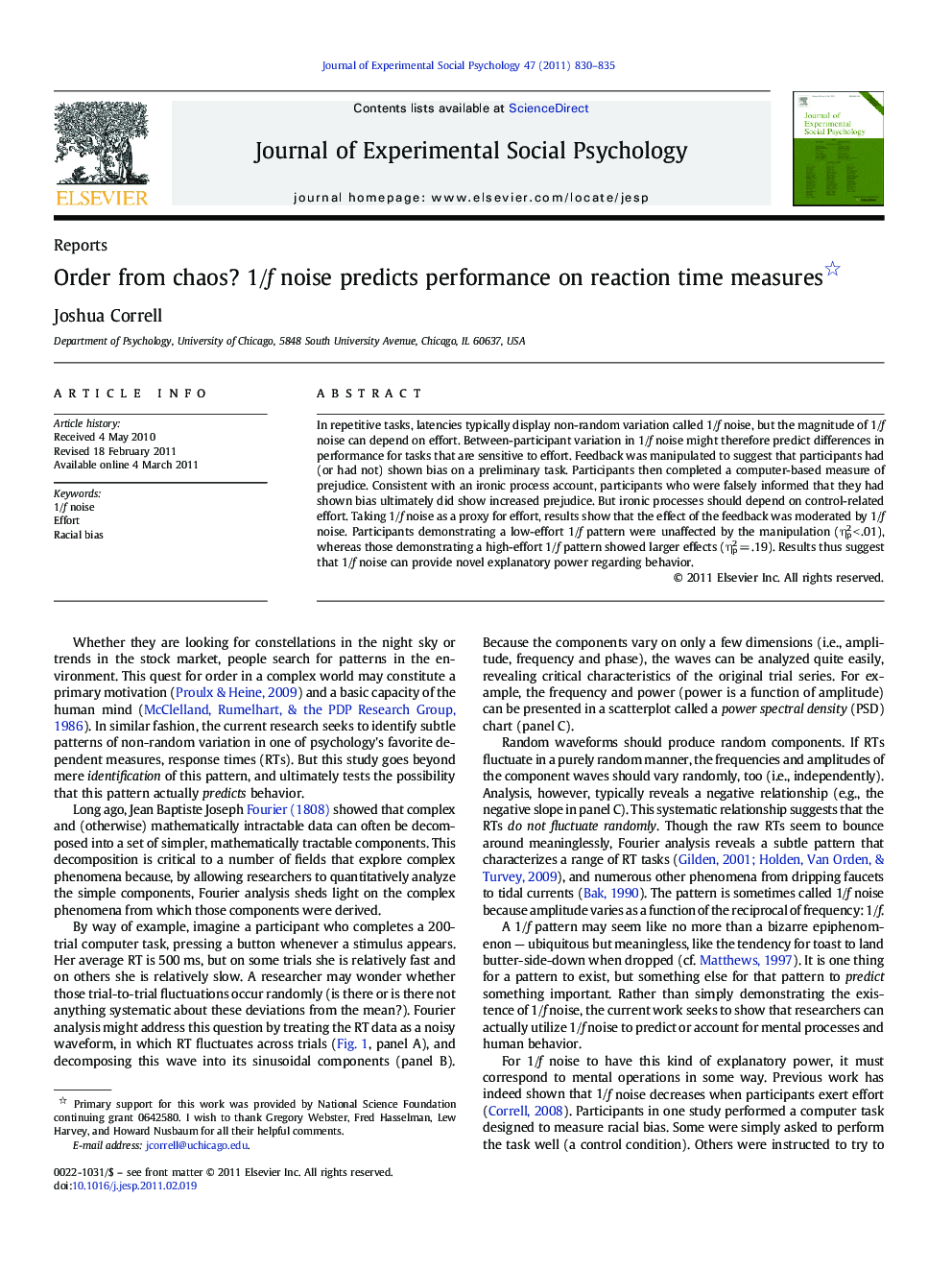| Article ID | Journal | Published Year | Pages | File Type |
|---|---|---|---|---|
| 948191 | Journal of Experimental Social Psychology | 2011 | 6 Pages |
In repetitive tasks, latencies typically display non-random variation called 1/f noise, but the magnitude of 1/f noise can depend on effort. Between-participant variation in 1/f noise might therefore predict differences in performance for tasks that are sensitive to effort. Feedback was manipulated to suggest that participants had (or had not) shown bias on a preliminary task. Participants then completed a computer-based measure of prejudice. Consistent with an ironic process account, participants who were falsely informed that they had shown bias ultimately did show increased prejudice. But ironic processes should depend on control-related effort. Taking 1/f noise as a proxy for effort, results show that the effect of the feedback was moderated by 1/f noise. Participants demonstrating a low-effort 1/f pattern were unaffected by the manipulation (ηp2 < .01), whereas those demonstrating a high-effort 1/f pattern showed larger effects (ηp2 = .19). Results thus suggest that 1/f noise can provide novel explanatory power regarding behavior.
Research Highlights► Reaction times show non-random variability called 1/f noise. ► 1/f noise depends on the degree to which participants exert effort on a task. ► 1/f noise actually predicts behavior on a task that is sensitive to effort.
